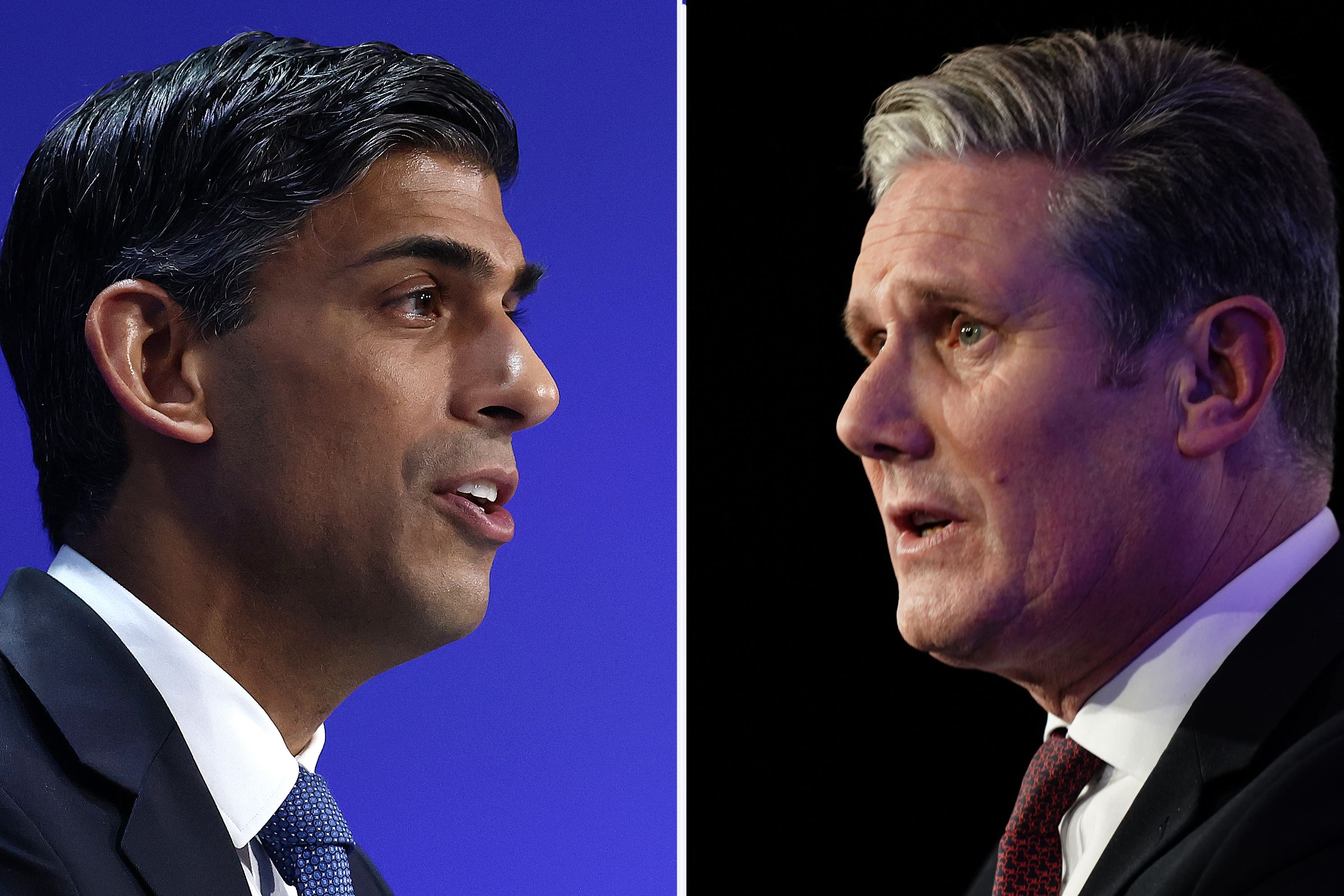What is the background to the tax rise row and what do we know now?
Tory claims that Labour will increase taxes is a bone of contention following the first televised leaders’ debate.

Rishi Sunak repeatedly claimed a Labour government would impose tax rises on working households during ITV’s head-to-head debate with Sir Keir Starmer.
However, it has emerged a senior official at the Treasury warned the Conservatives not to say civil servants were behind their central claim, raising questions over its credibility.
Here, the PA news agency details the background to the row and what is known so far.
– What are the Conservatives claiming about the impact of Labour’s tax plans?
The Conservatives have said for some time that Labour’s spending plans will lead to tax rises amounting to £2,000 for every working household.
This figure has been calculated on the basis that there is a £38.5 billion “black hole” in Labour’s spending plans, which is the equivalent of £2,094 for each of the 18.4 million working households in the UK.
The Conservatives say Labour’s plans to increase the revenue coming into the Treasury would collect £6.2 billion a year by 2028/29, therefore generating £20.4 billion over the next four years.
The Conservatives argue that this would leave a gap between spending and tax revenues of about £10 billion in 2028/29. The analysis then spreads this out over four-year period to reach the £38.5 billion figure.
– Who carried out the analysis?
The Conservatives claim the figures and conclusions were the result of an official analysis by the Treasury and, therefore, independent of party politics.
A document provided by the Conservatives confirming this analysis, titled Labour Tax Rises, is dated May 17.
However, questions have repeatedly been raised about the credibility of its conclusion and the figures used to reach it.
It is understood some of the estimates in the document have been carried out by civil servants at the Treasury, using assumptions provided by politically appointed special advisers.
– Was the conclusion on the impact of Labour’s plans reached independently by Treasury officials?
A letter to the Labour Party from the Treasury’s permanent secretary James Bowler has undermined Conservatives’ claims that the £2,000 figure for tax increases, and the £38.5 billion in uncosted spending, were set by an independent Treasury analysis.
The letter, sent to Darren Jones, the shadow chief secretary to the Treasury two days ago, said: “As you will expect, civil servants were not involved in the production or presentation of the Conservative Party’s document Labour Tax Rises or in the calculation of the figure used … the £38 billion figure used in the Conservative Party’s publication includes costs beyond those provided by the Civil Service.
He added: “I agree that any costings derived from other sources or produced by other organisations should not be presented as having been produced by the Civil Service.”
– How have the Conservatives responded to the letter?
Energy Secretary Claire Coutinho insisted on Wednesday that tax and spending figures were based on “official costings from the Treasury”.
She told BBC Breakfast that Treasury officials “would not be putting anything dodgy in there”.
Later, on Times Radio, Ms Coutinho claimed “this is something which has been signed off by the permanent secretary of the Treasury”, adding “those costings have been done by independent Treasury civil servants”.
– How have Labour responded?
Shadow paymaster general Jonathan Ashworth accused Rishi Sunak of “desperately lying” during the televised debate and said the Prime Minister was “exposed as desperate”.
“Labour will not put up income tax, will not put up national insurance, will not put up VAT,” he said.
He told BBC Radio 4’s Today programme: “We saw it with Boris Johnson over parties in Downing Street in lockdown, and Rishi Sunak has exposed himself as no better and no different than Boris Johnson with his lies last night.”
– What assumptions are made in the Labour Tax Rises document?
The document uses a series of assumptions to estimate the cost of potential Labour policies.
It says that a Labour government would have the option to cover its spending plans by increasing taxes, but it could also borrow to cover the cost.
While some of the estimates in the document have been carried out by civil servants at the Treasury, using assumptions provided by Conservative Party special advisers, other calculations were not made by civil servants.
Labour has yet to release its full manifesto for the General Election and potential costings.
However, disputing the figures during Tuesday’s night’s debate, Sir Keir said the Tory document included “pretend Labour policies”.
– How much has the tax burden increased under the Conservative government?
Data provided by the Organisation for Economic Co-operation and Development (OECD) show the UK’s current level of tax burden is the highest on record.
Statistics published late last year showed tax hit 35.3% of gross domestic product in 2022/23, a 0.9% increase on the previous year.
This ratio is forecast to grow to 37.7% by 2029, with the government’s freeze on tax ratios the dominant driver.
The Office for Budgetary Responsibility has also forecast a further hike in property taxes such as council tax and business rates.
– How have Labour and the Tories responded to the increase in the tax burden?
Labour said working people and business are “paying the price” for the Tories failure on the economy.
The Conservatives highlighted at the time that the UK’s tax to GDP ratio remained lower than France, Italy and Germany. The party has also pledged to bring the tax burden down, but it remains unclear how this will be paid for.
Bookmark popover
Removed from bookmarks